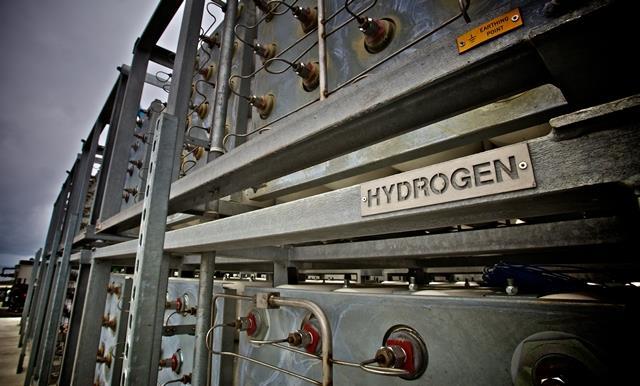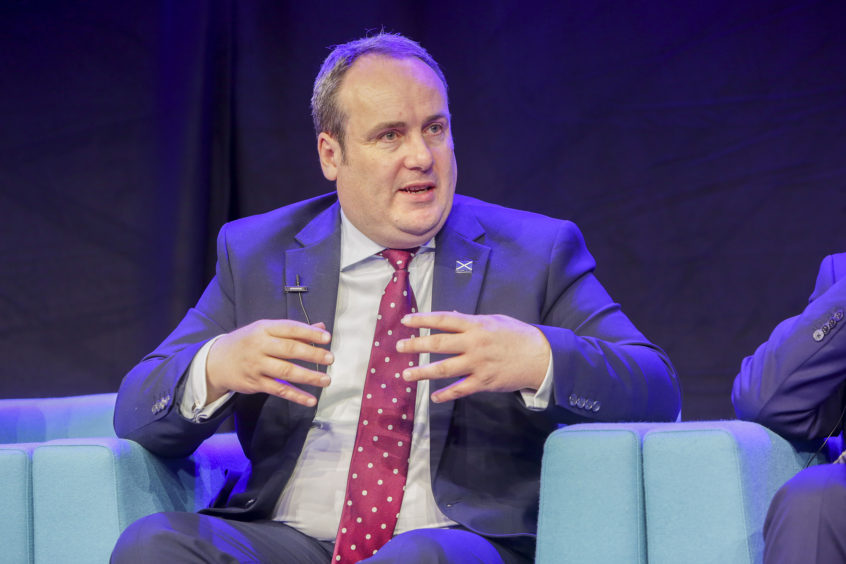
An Orkney-based renewables research centre will join a consortium exploring the opportunities for the floating wind and hydrogen supply chains in Scotland and France.
The European Marine Energy Centre (EMEC) has secured a contract to carry out the study alongside French engineering firm INNOSEA and London-based Renewables Consulting Group (RCG).
The trio will examine the technical status of the two technologies and identify ways that collaboration can be encouraged to address challenges of mutual interest.
The contract was awarded to EMEC by the Scottish Government following a competitive tender.
It’s hoped that, through collaborative research and development activity, new engineering solutions can be created to increase the competitiveness of the low carbon technologies.
Paul Wheelhouse, Scotland’s energy minister, said the project will help to support the government’s efforts to develop “new renewable energy solutions”.
He added: “I very much look forward to seeing its outcomes and to utilising its findings to inform further evolution of our energy policy as we ramp up our ambition and seek to harness exciting new opportunities as we expand offshore wind in Scotland.”
The project consortium will evaluate the technical status of the floating wind and hydrogen production components and systems under development.
It will also engage directly with the supply chains in Scotland and France to garner feedback on existing collaboration successes, as well as identify opportunities for further cross-border activity.
This spring, four virtual reflective workshops will be held with industry stakeholders in an effort to understand their experiences to date.
The consortium is specifically targeting equipment manufacturers (OEMs), installers, project developers, project designers, trade associations and regional development agencies.
A final report containing the findings of the project will be published in summer this year ahead of the landmark COP26 climate conference, which is due to take place in Glasgow in November.
Dr James Walker, hydrogen development manager at EMEC, said: “International collaboration and dissemination of lessons learned in innovation are integral to seeing progress in the development of floating wind and hydrogen production technologies. Both are also key aspects of EMEC’s work in testing and demonstrating the energy system of the future and we are delighted to be bringing this experience to support delivering this project.
“We look forward to working with INNOSEA and RCG, and to engaging with a broad range of industry stakeholders in Scotland and France to develop recommendations for the Scottish Government on means of best supporting collaborative innovation in these sectors.”
Hakim Mouslim, CEO at INNOSEA, said: “Working with international partners in the transfer and integration of expertise in different marine renewable sources is very much at the heart of our work at INNOSEA. We understand that achieving our shared goals on climate change goes far beyond traditional thinking on renewable energy. Achieving net zero is a global endeavour, and we are really honoured to join EMEC and the RCG to accelerate learning and innovation in floating wind for green hydrogen production.”
Dan Kyle Spearman, associate director and floating wind lead at RCG, said: “Exploring new engineering solutions for floating wind linked to green hydrogen production is going to be an important innovation for the energy transition. I look forward to working with EMEC and INNOSEA to identify opportunities and challenges. I’m excited to work in this collaboration between industry and government and in particular working with the Scottish and French supply chains to accelerate these promising technologies.”


